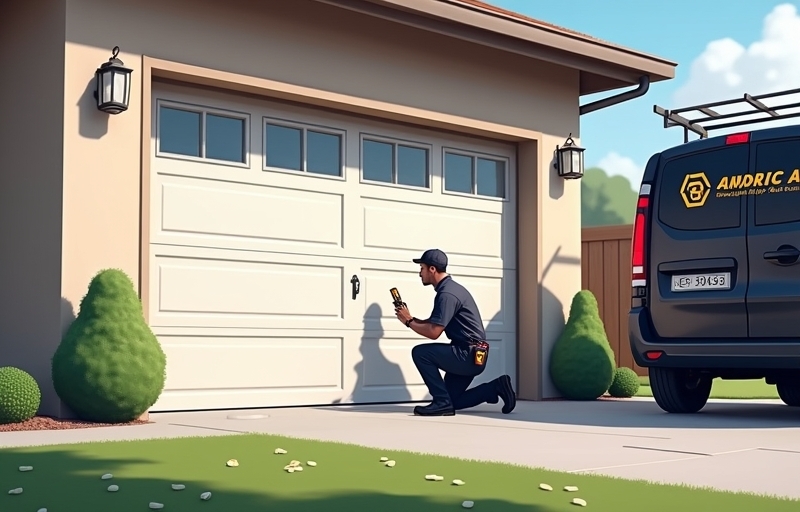
How to Handle Garage Door Sensor Failures
Introduction to Garage Door Sensor Problems
If your garage door refuses to close or randomly reverses, you might be dealing with garage door sensor problems. These issues are not only frustrating, but can also compromise the safety and security of your home. At Kraus Garage Door, we frequently receive calls about faulty garage door sensors that leave homeowners stuck in inconvenient or even dangerous situations. This comprehensive guide will help you understand how these sensors work, what can go wrong, and how to fix or prevent failures.
How Garage Door Sensors Work
Garage door sensors are part of the safety system designed to prevent the door from closing on people, pets, or objects. These sensors are usually located near the bottom of the garage door track on either side. One acts as a transmitter, sending an infrared beam across the door opening, while the other acts as a receiver.
When the beam is uninterrupted, the door can close normally. But if something breaks the beam—like a bike tire or a person walking through—the receiver fails to get the signal, and the garage door either stops or reverses to avoid causing harm.
The system is simple in principle but can fail for a number of reasons. Understanding how the system works is the first step to diagnosing and fixing sensor-related issues.
Common Garage Door Sensor Problems
Garage door sensor problems can stem from a wide range of causes. Below are some of the most common issues homeowners face:
- Dirty or Obstructed Lenses: Dust, spider webs, or physical objects can block the infrared beam, causing the door to malfunction.
- Misalignment: If the sensors are not perfectly aligned with each other, they won't communicate properly. Even slight vibrations from opening and closing can knock them out of place.
- Loose Wiring: Over time, wires connecting the sensors to the opener can loosen or wear out, disrupting the signal.
- Direct Sunlight: Strong sunlight can interfere with the infrared beam, especially in sensors that are not shielded properly.
- Electrical Interference: Nearby electronic devices or power surges can affect sensor functionality.
- Sensor Damage: Water damage, impacts from vehicles or lawn equipment, or age-related wear can all damage sensors permanently.
Identifying which of these problems is affecting your garage door system is essential to determining the next steps.
Step-by-Step Troubleshooting Guide
Before calling a technician, try these troubleshooting steps. In many cases, the fix is simple and doesn't require special tools.
1. Check for Obstructions
Look for objects blocking the sensors, such as leaves, tools, or debris. Clean the lenses with a dry cloth to remove dust, spider webs, or moisture.
2. Verify Alignment
Sensors should face directly at each other. Most sensors have LED indicators. A steady light usually means the alignment is good, while a blinking light indicates misalignment.
Adjust the sensors until the lights stop blinking, then tighten the screws to hold them in place.
3. Inspect Wiring
Examine the wires leading to the sensors. Look for frayed ends, corrosion, or signs of wear. If you spot an issue, turn off the power and carefully repair or replace the wiring.
4. Test the Sunlight Theory
If the sensors only fail during certain times of day, sunlight might be interfering. Try shading the sensor with cardboard or moving it slightly to reduce glare.
5. Reset the System
Unplug your garage door opener for about 30 seconds, then plug it back in. This may reset the sensors and solve electronic glitches.
6. Replace the Sensors
If none of the above steps work, the sensors may be damaged. Contact a local technician or purchase compatible replacements for your model. Be sure to follow the manufacturer's instructions for installation.
When to Call a Professional
While many garage door sensor problems can be fixed with DIY solutions, some issues require expert help. If your sensors are physically damaged, wiring is complex, or if you're not comfortable working with electrical components, it's best to contact a certified technician.
At Kraus Garage Door, our trained professionals can quickly diagnose and resolve sensor issues, ensuring your garage door operates safely and efficiently. We also offer same-day service for urgent repairs.
Preventive Maintenance Tips
Regular maintenance can help you avoid future garage door sensor problems. Follow these simple tips to keep your system running smoothly:
- Clean the Sensors Monthly: Wipe the lenses with a soft cloth to remove dust and debris.
- Check Alignment Regularly: Recheck sensor alignment every few months, especially after storms or vibrations.
- Inspect Wiring: Look for signs of wear or corrosion in the wires and repair them as needed.
- Test Operation: Periodically place an object under the garage door to make sure the sensors are working correctly.
Staying proactive helps prevent costly repairs and ensures your system complies with safety regulations.
Conclusion & Final Advice
Dealing with garage door sensor problems doesn't have to be a headache. With a basic understanding of how the system works and a few maintenance habits, you can avoid most common issues. And when things get complicated, don't hesitate to reach out to the professionals at Kraus Garage Door for fast, reliable service.
Whether you're troubleshooting a stubborn sensor or planning ahead with preventative care, we're here to help keep your garage door operating smoothly and safely.
Leave a Reply